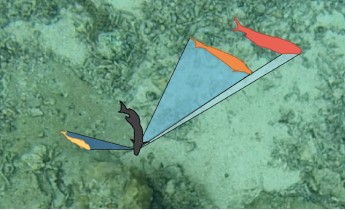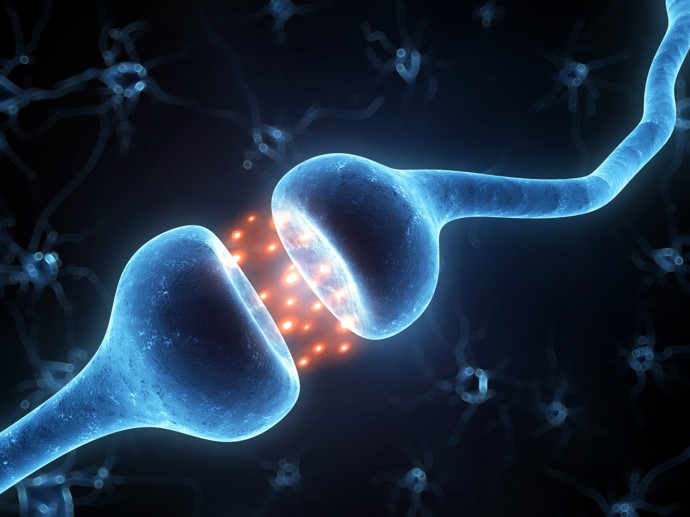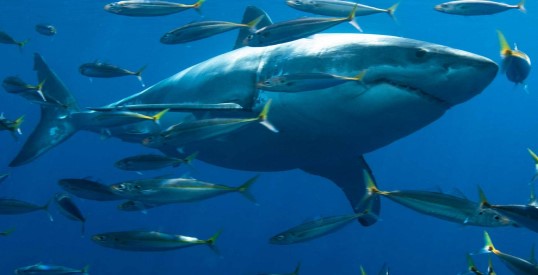 Biological Complexity (BSC 4930 - CRN:15804 / BSC 6936 - CRN: 15828)
Biological Complexity (BSC 4930 - CRN:15804 / BSC 6936 - CRN: 15828)Nature is complex. From cells to ecosystems to societies, our ability to comprehend and predict natural phenomena is made difficult by emergence, self-organization, randomness, nonlinearities, hierarchies, and collective dynamics. Our intuition often breaks down in these situations. In this course, we will learn how to make sense of complex biological systems. We will cover what you need to know to start wielding the tools of networks, math models, algorithms, and big data analysis to make headway on biological problems; and deploy these tools on real datasets and with modern computational perspectives. For additional information, please see the course advertisement.
Contact: Dr. Ashkaan Fahimipour
 Genes, Neurons, and Behavior (BSC 4930 - CRN: 15813 / BSC 6936 - CRN: 15845)
Genes, Neurons, and Behavior (BSC 4930 - CRN: 15813 / BSC 6936 - CRN: 15845)This course is designed to understand the neural basis of behavior at the single neuron level. In the past decade “optogenetics” has transformed the field and we will study up-to-date methods in genetics, electrophysiology and behavior. The objective is to make links to related courses (such as Comparative Animal Behavior, Biological Basis of Behavior, Genetics or Genetics Lab). Some of the work will be hands-on laboratory efforts in neurophysiology and neurogenetic labs and will link students to the laboratories doing modern research in this field on the various FAU campuses. In some instances the course will lead students toward local REU programs and ultimately to graduate programs at FAU and elsewhere in the USA. For additional information, please see the courses advertisement.
Contact: Dr. Rod Murphey
 Predator Ecology (BSC 6936 - CRN: 16028)
Predator Ecology (BSC 6936 - CRN: 16028)Predator-prey interactions are the fulcrum upon which ecosystem dynamics are balanced. They govern the flow of matter and energy up trophic levels, they regulate the behaviors, distributions, and abundances of organisms, and they strongly influence the structure of ecological communities. All ecological communities contain foragers, therefore, understanding predator prey interaction strengths (the relationship between a predator's foraging rate and the availability of food) is paramount for understanding how ecological communities function. In this discussion-based course, we will read and discuss a recent book on Predator Ecology in concert with primary literature to develop a better understanding of predators as the fundamental link between individuals, populations, eco-evolutionary dynamics, and the structure and dynamics of ecological communities. For additional information, please see the course advertisement.
Contact: Dr. Michael McCoy
 Contemporary Topics in Advanced Marine Ecology (BSC 6936 - CRN: 16026)
Contemporary Topics in Advanced Marine Ecology (BSC 6936 - CRN: 16026)This graduate course focuses on a broad understanding of major ecological shifts in marine organisms and ecosystems due to climate change, overfishing, and changes in coastal and ocean nutrient cycling. Some of the topics to be discussed include tropicalization, ocean hypoxia, ocean acidification, climate-induce restructuring of communities, sea level rise, ocean warming effects on organism physiology, reproduction and on shifts in ecosystems to alternative stable states. The course will also cover other contemporary marine ecological issues including declining fish stocks, loss of apex predators and subsequent trophic cascades. Changes in nutrient-cycling processes, e.g., eutrophication, the global carbon cycle and shifts in nutrient fluxes will also be examined. Finally, the course will cover ongoing conservation and remediation efforts to ameliorate these broad-scale impacts and evaluate the potential success of alternative management approaches; for example, reconsidering policies of size limits, marine reserves, habitat restoration, genetic manipulation and assisted migration. This course is designed to prepare graduate students for marine research in a rapidly changing ocean environment. For additional information, please see the courses advertisement.
Contact: Dr. Marguerite Koch